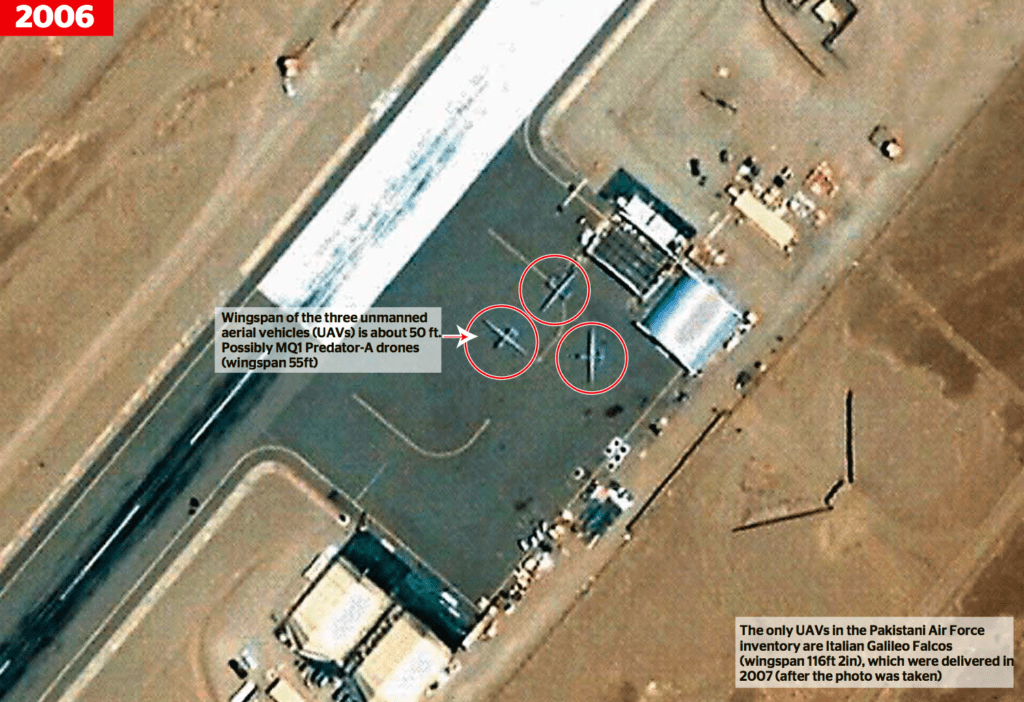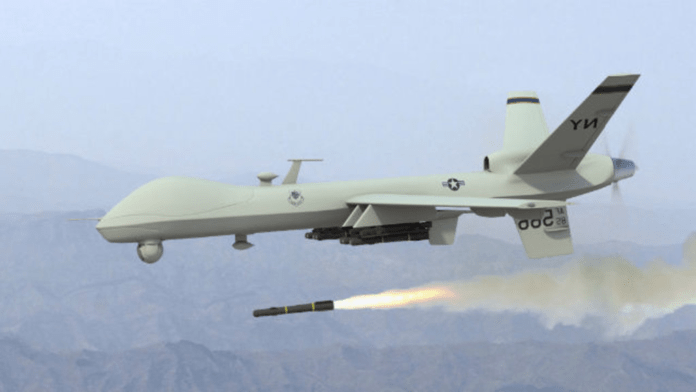Drone and suicide bomber are new facets of warfare. Drone is a bomb without man and suicide bomber represents the man as a bomb. Drone is an innocent looking name given to an unmanned aircraft or a remotely piloted aircraft, incorporating the entire range of lethal weapons that a piloted aircraft could carry. Drone functions through direction given to it from a ground or air borne command station via a data link; some of the versions also operate as a self-directing entity. As drone technology replaces human eyes and brain with machines to make the final decision to fire, warfare tends to become bloodier, especially in terms of collateral damage and, as a corollary, less accountable. Faulty intelligence often results in engaging wrong targets; at times informants have their own motives for naming their neighbours or their enemies as hostile combatants.
As opposed to a soldier assigned to a check-post sitting in freezing weather, keeping a watch to check infiltration, these neo-warriors” sit behind computer screens, thousands of miles away, sipping tea, while they unleash destruction through drones. At the end of their shift, they return to their homes, uninjured and alive. Use of drones raises some interesting questions; are drones any less intrusive than sending troops in? Don’t they constitute cross border violations? And, do these strikes violate international laws?
Newer version is of small ‘suicide’ drones capable of launching from a small tube, loitering in the sky and then diving at a target upon command. Likewise, a suicide bomber is a man with ultimate motivation to reach its target, identify it with own eyes and destroy it without regard to self-destruct and collateral damage. In case of both types of attackers, at the end of the day, there in no living survivor human being who could be held responsible for war crimes.

Civilised nations have always maintained compatible judicial processes to try the war criminals. Suicide focused tools of warfare deny such mechanism. Largely, the human suicide bomber is a non-state actor, whereas suicide drone acts on behalf of a state. Both kill their victim quietly and un-warned, not caring whether the victim is combatant or innocent. Hence, it would be difficult to differentiate between effects of terrorism created by these two types of warriors.
Daniel Pudles in his recent article ‘With its Deadly Drones, the US is fighting a Coward’s War’,
Recently carried by the Guardian reports that, “the CIA, which is running the undeclared and unacknowledged drone war in Pakistan, insists that there have been no recent civilian casualties… It is a blatant whitewash… CIA claims that since May 2010, drones have killed more than 600 militants and not a single non-combatant…a report last year by the British ‘Bureau of Investigative Journalism’ showed, of some 2,300 people killed by the US drone strikes in Pakistan from 2004 until August 2011, between 392 and 781 appear to have been civilians; 175 were children. As soon as an agency claims, ‘we never make mistakes’, you know that it has lost its moorings… Feeling no obligation to apologise or explain, count bodies or answer for its crimes, it becomes a danger to humanity…the brutality of war seldom escalates to its absolute form, partly because of the risk faced by one’s own forces. Without risk, there’s less restraint”.
According to an AFP tally, 45 US drone strikes were reported in Pakistan’s tribal belt in 2009, 101 in 2010 and 64 in 2011. The New America Foundation think tank in Washington says drone strikes in Pakistan have killed between 1,715 and 2,680 people in the past eight years.
President Obama has confirmed for the first time that US drones have targeted Taliban and Al-Qaeda militants on Pakistani soil. “they’ve been very precise precision strikes against Al-Qaeda and their affiliates, and we’re very careful in terms of how it’s been applied… who are trying to go in and harm Americans, hit American facilities, American bases, and so on… Many strikes were carried out on Al-Qaeda operatives in places where the capacities of that military in that country may not be able to get them…For us to be able to get them in another way would involve probably a lot more intrusive military action than the ones we’re already engaging in.”
WikiLeaks in late 2010 showed that Pakistan’s civilian and military leaders privately supported US drone attacks, despite public condemnation. Pakistan is now reviewing its entire alliance with the United States. It ordered the American personnel to leave Shamsi air base, a hub for the CIA drone program. Political baggage also comes to play in the context of ownership of the weapons. Manned aerial vehicles of own countries may unleash greater havoc and yet remain as an acceptable tool of war amongst the masses affected by it, than the drone of another country.
There is a perception that geostrategic compulsions arising out of partnership with the United States and other allies restrict Pakistan from taking a public position on the drone strikes. However, Pakistan’s foreign ministry reacted: “Notwithstanding tactical advantages of drone strikes, we are of the firm view that these are unlawful, counterproductive and hence unacceptable, our view has always been very clear and the position principled”.
Justin Randle in his column for the Sydney Morning Herald, ‘US Steps Outside The Law As War On Terror Drones On’, has criticized United States spy agency CIA’s drone attacks inside Pakistan as “illegal” and “outside the law.” This opinion piece is a revelation for those few Pakistanis, in politics and government, who secretly continue to support foreign attacks on their own soil, are incapable of asserting control over their territory, and protect their citizens killed at the hands of foreign intelligence agencies and terrorists. Randle says that CIA drones are an attempt to violate international law. He quotes a ‘conservative’ American estimate of 1717 deaths in Pakistan by CIA drones between 2004 and 2011, with a ‘conservative’ estimate of 32% civilian.
Human rights campaigners have also expressed deep concern over increased use of drone strikes. “The USA must disclose details of the legal and factual basis for the lethal use of drones in Pakistan”, Amnesty International said on 31 January. It also called for the USA to monitor civilian casualties inflicted by drone attacks in Pakistan. “The US authorities must give a detailed explanation of how these strikes are lawful and what is being done to monitor civilian casualties and ensure proper accountability, said Sam Zarifi Amnesty International’s Asia-Pacific director. “What are the rules of engagement? What proper legal justification exists for these attacks? While the President’s confirmation of the use of drones in Pakistan is a welcome first step towards transparency, these and other questions need to be answered.”
The irony is that while resentment increases against CIA drones among Pakistani citizens and internationally, a handful of pro-US journalists in Pakistani media, politics and military elites continue to defend the attacks using the strange logic that foreign terrorists also violate Pakistani sovereignty.
Drones are not made of a technology that would remain an exclusive domain of state actors, what to talk of developed countries only. Drone proliferation is around the corner. It requires far less infrastructure to operate drones than regular aircraft. Eventually, non-state actors would acquire this capability to which states will not have an easy counter. Once other countries and non-state acquire this technology and unilaterally decide to target countries and entities that they feel are threats to their security, then America would run for cobbling together something like a ‘Comprehensive Drone Ban Treaty!’




